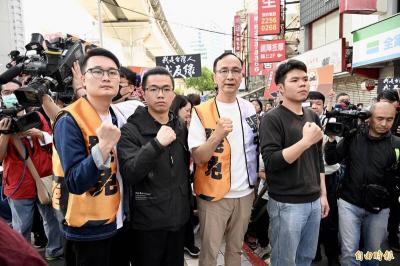An education program in Cambodia founded by a Taiwanese charity has benefited nearly 10,000 Cambodians over the past five years, which is comparable to a modern equivalent of the famed agricultural missions dispatched by the Taiwanese government to aid diplomatic allies in the 1960s.
The Cambodia-Taiwan Education Program was launched by the Taiwan Exquisite Culture and Education Association five years ago after the group, having funded a lunch program for orphanages in Cambodia with local priests, found that food relief would not lift orphans out of poverty, the program’s director, Hsu Chien-wen (許茜雯), said.
An occupational training subprogram was initiated this year to introduce 2,000 Cambodians to employment opportunities at Taiwanese businesses based in Cambodia over the next three years, Hsu said.
After emerging from the regime of the Khmer Rouge, Cambodia remains the poorest and most in need among Asian countries, she said, adding that the association decided to provide aid to the country as its efforts could be maximized with minimal budget in Cambodia, while the friendliness of Cambodians toward aid workers was also a factor.
“The philosophy of the association is: ‘We do what we can.’ It is within the power of the association to support Cambodia, although there are other countries in need of assistance,” she said.
Established with a limited amount of charitable donations, the education program was selective in providing aid, starting in cities and then expanding to remote areas, she said.
The program is mainly based on English and computer courses, as English is an international language, and digital literacy gaps have led to a widening wealth gap in the 21st century, so computer education is at the heart of the program, she said.
Kenny, a Cambodian manager of the program, said that although rural areas are in general underdeveloped and poverty-stricken, everyone knows that learning English and computer skills is key to changing the future, so parents are willing to sign their children up.
The program has offered Chinese courses in some regions to help young people find jobs in the tourism industry or with Taiwanese businesses, Hsu said.
Nearly 10,000 Cambodians have taken courses with the program, and the association launched an occupational training subprogram to provide sewing training this year, with trainees having completed the training to be recommended to Taiwanese companies, she said.
The program provides Taiwanese with an opportunity to perform volunteer work, with hundreds of Taiwanese students volunteering in Cambodia and learning by helping others each year, she said, adding that the program has helped promote Taiwan through charity work.

The Ministry of Economic Affairs has fined Taobao NT$1.2 million (US$36,900) for advertisements that exceeded its approved business scope and ordered the Chinese e-commerce platform to make corrections in the first half of this year or its license would be revoked. Lawmakers have called for stricter supervision of Chinese e-commerce platforms and more stringent measures to prevent China from laundering its goods through Taiwan as US President Donald Trump’s administration cracks down on origin laundering. The legislature’s Finance Committee yesterday met to discuss policies to prevent China from dumping goods in Taiwan, inviting government agencies to report on the matter. Democratic Progressive Party

Taiwan and its Pacific ally Tuvalu on Tuesday signed two accords aimed at facilitating bilateral cooperation on labor affairs, according to Taiwan’s Ministry of Foreign Affairs (MOFA). The governments inked two agreements in Taipei, witnessed by Foreign Minister Lin Chia-lung (林佳龍) and visiting Deputy Tuvaluan Prime Minister Panapasi Nelesone, MOFA said in a news release. According to MOFA, the agreements will facilitate cooperation on labor issues and allow the two sides to mutually recognize seafarers’ certificates and related training. Taiwan would also continue to collaborate with Tuvalu across various fields to promote economic prosperity as well as the well-being of their

The Taipei District Prosecutors’ Office has continued its investigation into allegations of forged signatures in recall efforts today by searching the Chinese Nationalist Party’s (KMT) city chapter and questioning several personnel including the chapter director, according to media reports. Among those questioned and detained were KMT Taipei chapter director Huang Lu Chin-ju (黃呂錦茹), chapter secretary-general Chu Wen-ching (初文卿), chapter secretary Yao Fu-wen (姚富文) and first district committee executive director Tseng Fan-chuan (曾繁川). Prosecutors said they would not confirm reports about who had been summoned. The investigation centers on allegations that the ongoing recall campaigns targeting Democratic Progressive Party legislators Rosalia Wu (吳思瑤)

Several Chinese Nationalist Party (KMT) officials including Chairman Eric Chu (朱立倫) are to be summoned for questioning and then transferred to prosecutors for holding an illegal assembly in Taipei last night, the Taipei Police said today. Chu and two others hosted an illegal assembly and are to be requested to explain their actions, the Taipei City Police Department's Zhongzheng (中正) First Precinct said, referring to a protest held after Huang Lu Chin-ju (黃呂錦茹), KMT Taipei's chapter director, and several other KMT staffers were questioned for alleged signature forgery in recall petitions against Democratic Progressive Party (DPP) legislators. Taipei prosecutors had filed